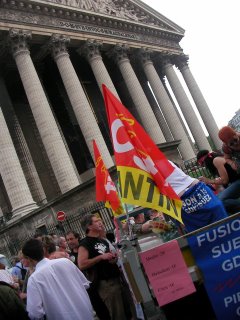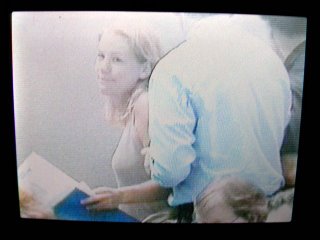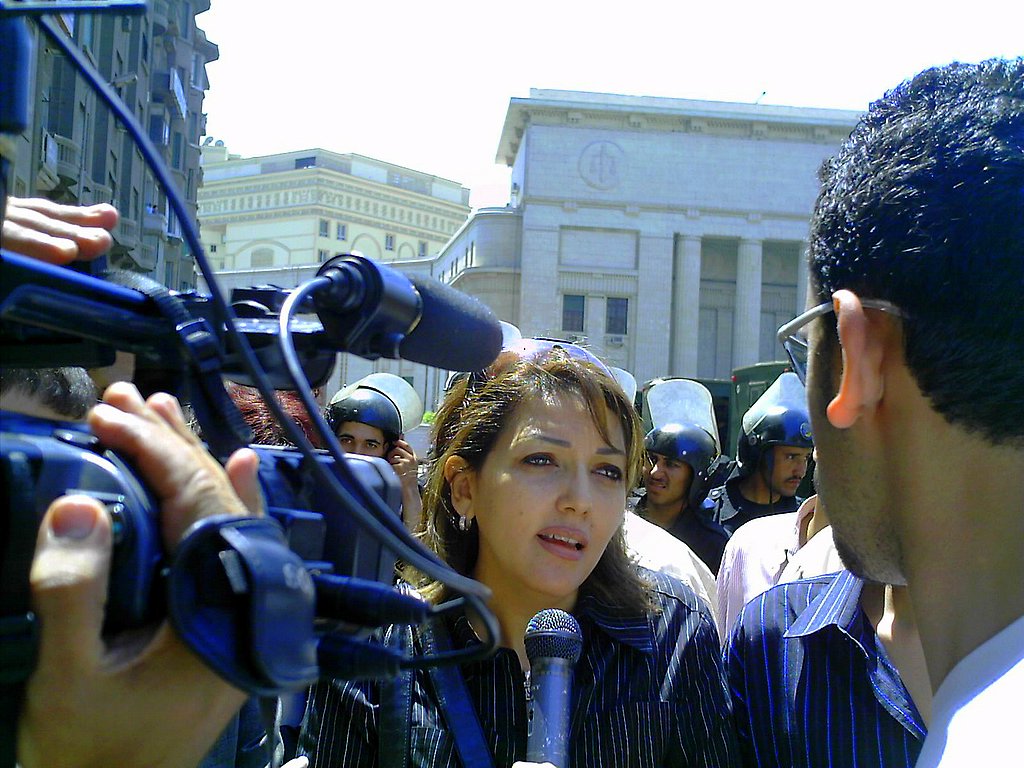July 17, 2006 issue - The arrest of former U.S. Army Pfc. Steven D. Green—for the alleged rape of an Iraqi woman and the murder of her and three relatives near the town of Mahmudiyah—brought apologies from U.S. officials. But that didn't stem a growing debate over Coalition Provisional Authority Order 17, which exempts members of the U.S. military from Iraqi laws. "We cannot go on having these unfortunate incidents repeated, and we have to work on stopping them from happening again," Iraqi national-security adviser Mowaffaq al-Rubaie told NEWSWEEK. "There is no way we can accept CPA Order 17 anymore." U.S. officials, unnamed because of diplomatic sensitivities, said Iraqi P.M. Maliki's need to oppose the order might lessen if any wrongdoers in the Haditha and Mahmudiyah cases are held accountable. Green pleaded not guilty in a U.S. federal court last week.
From Christopher Dickey, the author of "Our Man in Charleston: Britain's Secret Agent in the Civil War South" and "Securing the City," this site provides updates and footnotes on history, espionage, terrorism, fanaticism, policing and counterinsurgency linked to Dickey's columns for The Daily Beast and his other writings; also, occasional dialogues, diatribes, and contributions from friends.
Sunday, July 09, 2006
Update: The Debate on Order 17 Heats Up
Thursday, July 06, 2006
Update: Render Unto CIA That Which Is ...
If Italian prosecutors have anything to say about it, the issue of C.I.A. "renditions," particularly the egregious example of "Abu Omar," snatched off the streets of Milan in 2003, is not going to go away. We wrote about the case extensively last year, and even shot a little video from the scene of the alleged crime, in "The Road to Rendition." Then came a follow-up, "Bourne Again," about the lives and loves of the CIA team that allegedly took part in the abduction. (As the headlines suggest, there's something vaguely B-movie about the whole affair.) A Shadowland column in December about the role of "plane-spotters" in tracking down the rendition flights suggests just how extensive they were, and how hard it is to keep secrets in the Internet age.
A few weeks ago, on June 7, Swiss lawmaker Dick Marty, on behalf of the Council of Europe Parliamentary Assembly, issued a lengthy report. He didn't have many resources, but concluded -- largely on the basis of press reports and the cooperation he did or did not receive for his inquiries -- that about 14 European governments had cooperated with the American rendition program. The result was what his report called a "'spider's web' of secret detentions and unlawful inter-state transfers." But, bad luck for Marty, his headlines were obliterated by the annoucement next day that the infamous Jordanian terrorist Abu Mussab al-Zarqawi had been blown away in Iraq. The rendition issue looked as if it might be buried, too.
Nope. Yesterday news broke in Italy that prosecutors, led by the redoubtable anti-Mafia and anti-terror magistrate Armando Spataro, had issued warrants against two of the top officials in the Italian overseas intelligence service, SISMI. The organization has seen its share of troubles over the last two years -- not least the killing of its second highest-ranking officer, Nicola Calipari, by American troops manning a checkpoint in Iraq. (We wrote about this in two columns: "Reality Checkpoints," and "Body Counts," which I believe remains the most-read Shadowland column to date.) But Berlusconi was not inclined to hold Americans accountable, whether they were C.I.A. kidnappers or checkpoint gunners.
What's changed now, of course, is the government in Italy. Silvio Berlusconi is out, Romano Prodi and his leftist coalition are in. Spataro was isolated under the earlier regime, a charter member of the Coalition of the Willing. Berlusconi's justice minister, for instance, refused to pursue extradition requests for 22 Americans allegedly implicated in the Abu Omar case. Now, Spataro and other prosecutors seem to be getting more support.
This is not good news for the Bush administration. Even as prosecutors try to nail the top Italians involved in the Abu Omar kidnapping -- a trail that could lead to Berlusconi himself -- they are likely to renew those extradition requests. At the same time, they're looking at prosecution of the American soldier in Iraq who killedCalipari moments after he succeeded in freeing left-wing Italian journalist Giuliana Sgrena from hostage-takers in Baghdad. Sgrena was seriously wounded.
We'll keep you posted in the Shadowland column, in Newsweek, and on this blog. Meanwhile, a couple of recent clips:
One from The New York Daily News last month, when Sgrena visited the United States:
| Italian seeks G.I. shooter
| ||||||
|
| ||||||
| | ||||||
"I think that it would be useful for him and for me to have an exchange of opinion," Sgrena said during her first visit to the United States since the shooting. The shooting, which killed Nicola Calipari, the Italian government's second-ranking intelligence officer, just minutes after Calipari had secured Sgrena's release from Iraqi guerrillas, sparked a public furor in Italy. That uproar grew worse after a Pentagon report last year cleared the U.S. soldiers involved. Italian prosecutors, after conducting their own probe, announced plans this week to charge Lozano, a member of New York's legendary Fighting 69th, with murder and attempted murder. But Sgrena, who is still recovering from a gunshot wound that collapsed her lung, doesn't want Lozano to be made a "scapegoat." |
Wednesday, 5 July 2006, 12:56 GMT 13:56 UK
Italians held over 'CIA kidnap'
Unconfirmed Italian reports named one as Marco Mancini, a senior official at the Sismi intelligence agency.
Arrest warrants for four Americans were also issued, adding to 22 earlier ones.
Italy's previous government denied any role in the seizing of Egyptian Muslim cleric Osama Mustafa Hassan, who says he was taken to Egypt and tortured.
The two arrested men are the first Italians to be linked to the investigation. One is said to be in custody; the other under house arrest.
Mr Mancini is a former head of the anti-terrorist division of the Italian secret service. He has taken part in negotiations to free Italian hostages kidnapped in Iraq.
Kidnap claims
Mr Hassan, also known as Abu Omar, is believed to have been abducted from a Milan street on 17 February 2003, and flown out of the country from Aviano air base north of Venice.
The cleric, who had been granted refugee status in Italy, was already under investigation by Italian officers as part of a terrorism inquiry.
Milan prosecutors probing the kidnap case believe Mr Hassan was snatched by the CIA and taken to Aviano for interrogation, before being flown on to Cairo via Ramstein air base in Germany.
He is still being held in a jail in Egypt, but did make contact with his family and friends during a brief release. A friend who spoke to him said he had suffered electric shocks and other severe torture.
Wanted Americans
The Milan prosecutors' office statement said three of the Americans involved in the fresh arrest warrants were CIA agents, while the fourth worked at the Aviano base....
Today's New York Times goes into somewhat more depth, but tells essentially the same story.
Update: Rules of the Game in Iraq
Wednesday, 5 July 2006, 13:36 GMT 14:36 UK
Call for Iraq probe in rape case
Her father, mother and young sister also died in the March attack at their home in Mahmoudiya, south of Baghdad.
"We will demand an independent Iraqi inquiry, or a joint investigation with multinational forces," Mr Maliki said during a visit to Kuwait.
A former US soldier has been charged with rape and murder.
Up to four other soldiers are being investigated.
The inquiry is the latest in a series examining alleged abuses by US troops.
'Honour violated'
Mr Maliki also called for the immunity granted to coalition troops to be reviewed.
"We do not accept the violation of Iraqi people's honour as happened in this case. We believe that the immunity granted to international forces has emboldened them to commit such crimes," he said.
But a US military spokesman, Major-General William Caldwell, said American soldiers were not immune from prosecution because they were accountable under military law. ...
Of course, Caldwell dodges the central question. The immunity of American soldiers -- and just about any other American working on a USG contract or subcontract in Iraq -- is to Iraqi prosecution. -- C.D.
Tuesday, June 20, 2006
Press: Ben Bradlee On The Record
 If you've got an hour or so to listen to Jim Lehrer's interview with Ben Bradlee, well, it's an education not only in the letter, but the spirit, of journalism as it should be.
If you've got an hour or so to listen to Jim Lehrer's interview with Ben Bradlee, well, it's an education not only in the letter, but the spirit, of journalism as it should be.This front page, by the way, is from the summer I started working at The Washington Post. - C.D.
French Protests: The Cuban Connection
 Took this picture at Place de la Madeleine today. It was blocked off entirely so the CGT could protest against privatizations of state utilities. There were more cops than demonstrators, but the protesters were having a better time. Click to enlarge and check out the pink sign for one reason why. - CD
Took this picture at Place de la Madeleine today. It was blocked off entirely so the CGT could protest against privatizations of state utilities. There were more cops than demonstrators, but the protesters were having a better time. Click to enlarge and check out the pink sign for one reason why. - CD 
Al Qaeda: MUBTAKKAR
As an antidote to the hype, I'd suggest reading my colleague Mark Hosenball's report on the Suskind book. And for a very, very skeptical but well reasoned appraisal, I'd propose a curious blog called "Dick Destiny," which critiques not only the Time story, but the whole culture of hyperbole that has grown up around Al Qaeda's still futile efforts to conjure weapons of mass destruction.
Meanwhile, of course, it appears North Korea is getting ready to launch a long-range missile capable of reaching the United States and, oh darn, the Bush administration can't quite figure out what to do.... - C.D.
Monday, June 19, 2006
Bush: Screen Saver
Iraq: DUSTWUN
From Department of Defense,
INSTRUCTION NUMBER 1300.18, December 18, 2000:
E2.1.1.16. Duty Status - Whereabouts Unknown (DUSTWUN).
A temporary designation, applicable to military members
only, used when the reason for a member's absence is
uncertain and it is possible that the member may be
a casualty whose absence is involuntary, but there is
not sufficient evidence to make a determination that
the member's actual status is missing or deceased.
The acronym DUSTWUN is an old one for the American military, but a new one for most of the American public. Sadly, it may soon be translated into "hostage."
This is the official Defense Department press release about the events near Yusufiyah south of Baghdad on Saturday:
DoD Identifies Army Casualty and Soldiers as Whereabouts Unknown
The Department of Defense announced today the death of one soldier
and the identity of two soldiers listed as Duty Status Whereabouts Unknown
(DUSTWUN) who were supporting Operation Iraqi Freedom. On June 16, in
Baghdad, Iraq, the soldiers were manning a checkpoint when they came under
enemy small arms fire. All three soldiers were assigned to the 1st Battalion,
502nd Infantry Regiment, 2nd Brigade, 101st Airborne Division (Air Assault),
Fort Campbell, Ky.
Spc. David J. Babineau, 25, of Springfield, Mass.
Reported as DUSTWUN are:
Pfc. Kristian Menchaca, 23, of Houston, Texas
Pfc. Thomas L. Tucker, 25, of Madras, Ore.
According to some unconfirmed reports, the U.S. military, searching intensely for the two, has offered residents of the area up to $100,000 for information leading to their release. But it's unlikely this is a money deal.
Last Wednesday, I met with a British friend who runs one of the many private security companies in Iraq. He predicted that American and British soldiers would be taken hostage there and possibly in Afghanistan as well. He suggested that the most likely propaganda goal would be to accumulate several hostages taken in ambushes, then to carry out serial executions over time. It looks like he was right about the first part of the program. Let's hope he was wrong about the second. - CD
Monday, June 12, 2006

On a flight from Jordan back to Paris today, I watched the 2005 documentary "Enron: The Smartest Guys in the Room," which I hadn't seen before. It's a great reminder of the kind of BS "out-of-the-box" thinking and macho posturing that not only bankrupted a huge company, but helped drag the United States into the quagmire of Iraq. Afghanistan, after all, just wasn't a big enough war for tough guys like Dick Cheney and the neo-con clique at the Pentagon.
About two-thirds of the way through the movie, there is a chapter on Enron's rape of California in 2001, and a sequence in which protesters disrupt a conference with Enron CEO Jeff Skillings at the Commonwealth Club in San Francisco. One throws a blueberry tofu cream pie at the guy, or smears his face with it. That precise moment, alas, was not captured on tape, and I'm not sure who the intrepid pastry tosser was, but in the next scene we see Marla Ruzicka being dragged out of the room by a security man, shouting protests all the way.
I didn't meet Marla until the eve of the Iraq invasion, but saw her often in 2003 and 2004, when she was working to win recognition of and compensation for the Iraqi victims of the U.S.-led invasion. She'd been connected with the lefties of Global Exchange before that, and made protest a way of life, but the shock of Iraq had turned her into a pragmatist who was able to work with the American military, if necessary, to get help to some of the suffering Iraqis. When Marla was killed on the infamous airport road last year, all of us who knew here felt the loss.
A quick check of Google entries tells me that others noticed Marla in the Enron film, but I was surprised and touched to see her unexpectedly once again, so full of life and fire.
Saturday, June 03, 2006
Rumsfeld: More on Unknown Unknowns
My friend Joe notes this remark from Rumsfeld just yesterday, on the alleged Haditha massacre:
"We also know that in conflicts things that shouldn't happen do happen."
Regarding your article entitled "
I remember reading this work as a young engineer back in the mid 1980's and roaring with the laughter that only come from the truth exposed. Mr. Augustine's book is a must read for anyone in the defense business and is as true today (sadly) as it ever was.
And to all who refer to the concept of "Known Unknowns", give credit where credit is due.
Shadowland: Jail Break 27 May 2006
Why the best new chance to end the Middle East impasse came from Palestinian inmates of an Israeli prison.
Shadowland: K Is for Vendetta 17 May 2006
Why does the Bush administration want to believe that Kaddafi has changed his ways?
Shadowland: Season of the Wolf 12 May 2006
Is there a case for conspiracy theories about 9/11 and the Iraq war? For Washington's opponents, the truth is less important than the image of an America gone mad.
Newsweek International: Why Iran Is Driving Oil Up 7 May 2006
Tehran could calm jitters by toning down its nuclear rhetoric—if the regimee didn't need the money more.
NYT Book Review: The Sand Café,' by Neil MacFarquhar 7 May 2006
Love and Rockets
Newsweek Online: Catholics and Condoms 3 May 2006
Will the pope change the church’s stand? The Vatican is currently engaged in a complex debate—and a major part of it is whether condoms could turn marital sex into something considered evil.
Newsweek Online: Depth in Venice 5 May 2006
A French businessman’s stunning collection is helping to turn the city of the doges into a European mecca for modern art.
Newsweek: Iran: A Rummy Guide 30 April 2006
To borrow a phrase used for Iraq, there are 'things we now know we don't know.' NEWSWEEK sorts it out.
Egypt: Not the Picture of Democracy

Gameela Ismail and her older son wait in court for word on Ayman Nour's appeal.

Ismail speads to reporters as an unidentified man watches and listens.

Gameela Ismail speaking to Al Jazeera outside courthouse, with riot police in background.

